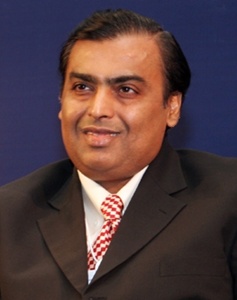RIL wins SC ruling for London arbitration of Panna-Mukti row
28 May 2014
In a major relief to Mukesh Ambani-led Reliance Industries Ltd (RIL) the Supreme Court today ruled that the ongoing arbitration between the company and oil ministry over reimbursement of royalties and taxes in the Panna-Mukta and Tapti (PMT) gas fields should be decided in a London court.
 The SC, however, ruled that the foreign court should apply Indian arbitration laws in the process and that the court should also look at Indian public policy while deciding the issues.
The SC, however, ruled that the foreign court should apply Indian arbitration laws in the process and that the court should also look at Indian public policy while deciding the issues.
The bench comprising Justices SS Nijjar and AK Sikri also ruled that the final arbitral award can only be challenged in the English courts.
The government had earlier obtained a ruling from the Delhi high court against two awards in the Panna-Mukta arbitration, but the apex court has now set this aside.
Reliance Industries (RIL) and BG Exploration and Production India had since approached the Supreme Court for settlement of issues with the government through arbitration in London.
The ministry of petroleum and natural gas had opposed arbitration proceedings in London saying that the matter should be settled in an Indian court.
While allowing RIL's appeal, the SC bench said the disputes between the operators of the gas fields and the union government will be arbitrated in London.
The arbitration involving issues such as royalty and taxes, cost recovery limit etc relating to the production sharing contract of the Panna, Mukti, Tapi gas fields on the western coast will have a bearing on RIL's continuing dispute with the government over the KG-D6 gas fields on the east coast.
The union government had argued against the 2012 award of the international arbitrator directing the government to reimburse the RIL-BG consortium to the tune of $11,413,172, besides additional cess recovered from the companies in respect of royalties, cess, service tax and CAG audit as arbitrable.
The arbitral tribunal comprising Christopher Lau SC, Justice BP Jeevan Reddy, former Judge of Supreme Court of India and Peter Leaver QC is hearing the matter.
RIL had argued that the parties had agreed that the seat of arbitration would be London and that the Uncitral Rules of 1976 would apply; thus courts in India have no jurisdiction to decide the matter and only courts of England have an exclusive jurisdiction in this regard.
RIL had also argued that Part II of the Arbitration and Conciliation Act 1996 does not empower the Indian courts to set aside a foreign arbitral award.




















